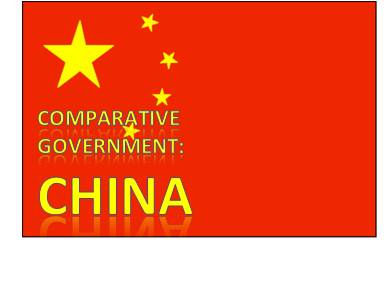 In a recent Economist article titled "What are they afraid of?", the author delved into the topic of China's repressive policies.
In a recent Economist article titled "What are they afraid of?", the author delved into the topic of China's repressive policies. The article compares China's political history to its current status. A decade ago, it was thought that China was being forced to integrate with the rest of the world, now the forces causing this seem to be far weaker than was once thought.
Recently, China has been passing long jail sentences for most human-rights activists. The large protest movements in China are mainly related to ethnic tensions. The struggles of the past seem to have been repressed effectively. There is little uprising in China's cities, however, and academic by the name of Liu Xiaobo "was sentenced to 11 years in prison in December,""the heaviest-know penalty imposed on any activist for 'inciting subversion' since such a crime was written into law in 1997."
There was worry about the world economic recession causing frustration among those in China, and possibly causing dissent, but their economy actually grew 8.7%. Also, there is a change of power expected in the next few years, but other than some attempts to gain support for promotions, there has been little evidence of any sort of struggle.
It appears to some that all of the expected transitions are still going as planned, even if they are happening in a slightly different manner than expected, such as the vice president not getting a military post thought to be part of his training to take over for the president. The next leaders are expected to maintain the current situation in China. The political analyst Russell Leigh Moses believe that the question within China's government is "'how much more authoritarian show we be?' not 'how do we embark on a Western-style democracy?'"
Even though punishments have been getting tougher recently, they are not unusual. It follows China's pattern of allowing some free thought, but punishing "those seen as straying too far."
China's leadership is still showing signs of trouble even though the country is doing well. There have been speeches and actions that suggest the current stability is difficult to hold constant. Many feel that the economic advancement and stimulus that seem to be making the country strong and quelling decent will not endure. These same people feel that growth and reform are coming too slowly to allow the status quo to be maintained. "A combination of fast-rising prices and low growth might indeed be enough to send protesters on to the streets."
The current status of repression in China has a massive impact on its ability to become free, the government's legitimacy, and the citizens daily lives. If the citizens are prevented from speaking out against the government, or at least speaking out too much, they will never solver many of their problems. Also, the chances for positive political change are reduced.
The jittery nature of China's political elites also hints at a weakness that could be devastating to them and the world. If it comes from a shaky economy, it could mean a potential collapse that will devastate the world. If it comes from problems with authority, it could mean the destruction of the regime and a loss of all legitimacy.
"Grade This Post"







No comments:
Post a Comment